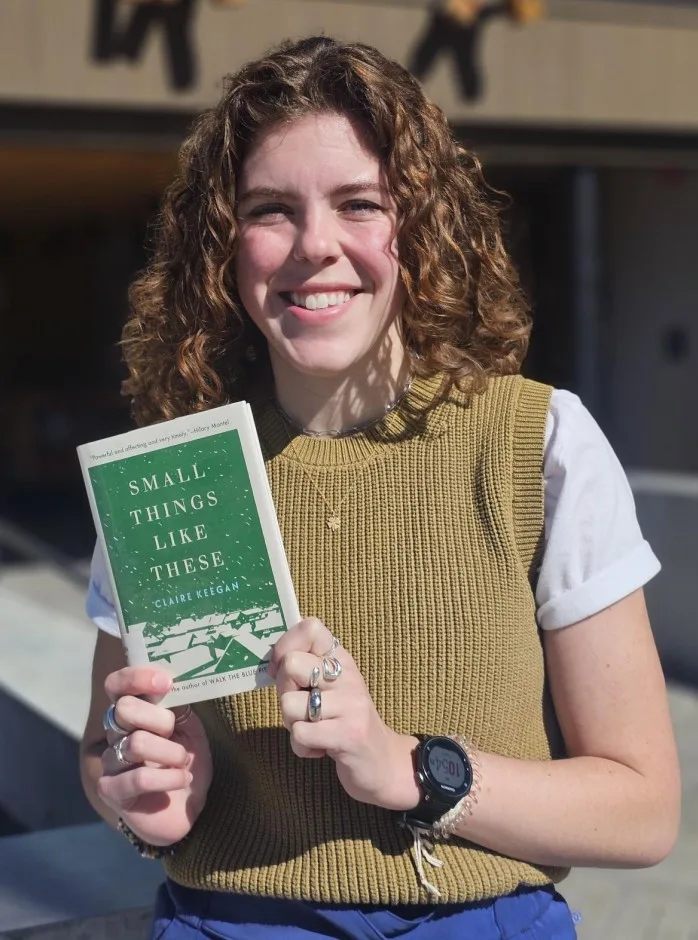Museum Community Engagement Manager, Brigid Miller, recommends Small Things Like These by Claire Keegan.

In just 114 pages, Claire Keegan paints a vivid picture of everyday life amidst a dark period of Ireland’s history. Small Things Like These is a story about the struggle between an institution in control and the choice between complicity and courage.
It’s 1985 and the Catholic Church runs the small Irish town in which Bill Furlong and his family live. One day, while delivering coal to the local convent, Bill encounters a woman scrubbing the floor asking him to take her away. Later, on another delivery, he finds a teenage woman locked in a shed and asking for her fourteen-week-old son. Knowing the gossip around the village of a “laundry” at the convent, Bill finds himself caught between his own past and the future he wants for his five daughters.
The rumors that Bill hears are about Magdalene Laundries. From the 18th to the late 20th Century, the
Catholic Church ran Magdalene Laundries across Ireland.
While the exact number is unknown, upwards of thirty thousand women and girls were incarcerated and forced to labor in this system.
The Church also ran “Mother and Baby Homes” where unwed pregnant women went to have their children and stayed after, and where it is estimated that tens of thousands of infants died or were put up for adoption. These two institutions often overlapped and…
…it was not until the late 1990s that the final Magdalene Laundry in Dublin closed and the truth behind these institutions was brought to light.
Although much is still unknown due to records being destroyed, lost, or made inaccessible. To this day survivors and descendants of these institutions are still fighting for justice and awareness.
In this novella, Keegan is shedding light on a part of the past that is still ignored today, but also showing how easy it is to be a bystander to injustice, and the courage it takes to speak out.
In one of the most powerful parts of the book, Keegan invites readers to step into Bill’s shoes and reflect on our own complicity. She writes, “He found himself asking was there any point in being alive without helping one another? Was it possible to carry on along through all the years, the decades, through an entire life, without once being brave enough to go against what was there and yet call yourself a Christian, and face yourself in the mirror?”
Keegan, as she did in her previous novella Foster, creates a powerful narrative in so few pages, and one
that will stay with you long after you finish reading.
Find Small Things Like These in the Library’s collection here.
